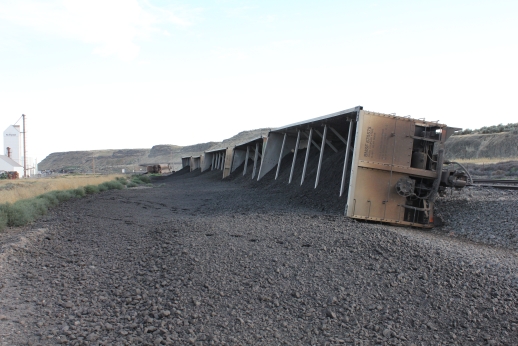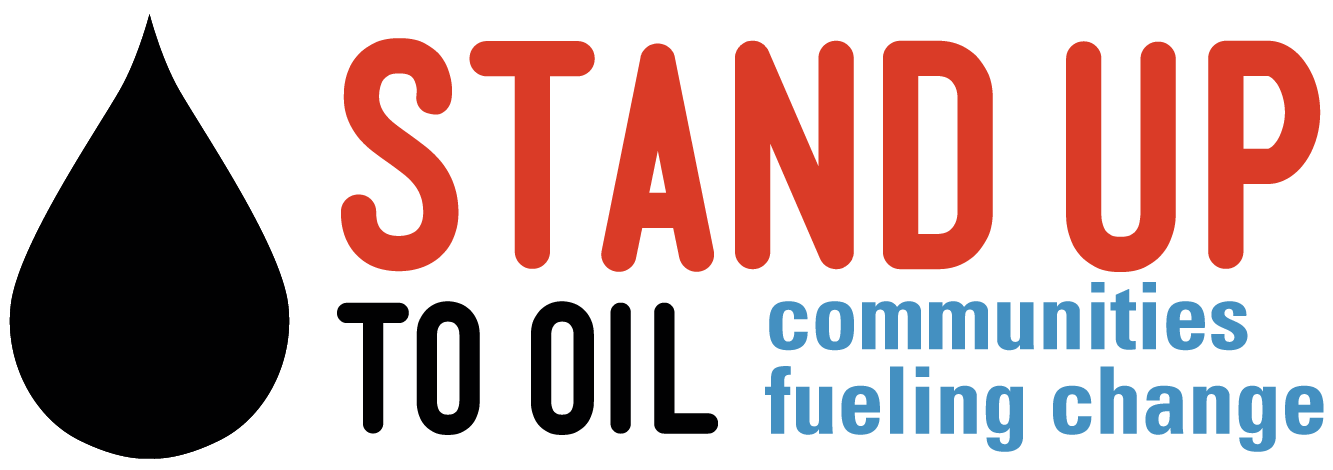Originally posted on Cascadia Weekly.
Forty cars of a coal train derailed in Montana last week, dumping an unknown amount of coal into nearby Rocky Creek.
“Some of the cars filled with coal were left intact while others were mangled,” the Bozeman Daily Chronicle reported. “Others folded like an accordion or fell off the tracks.”
Something analogous might be said of the Wyoming legislature’s attempt to smash open the Pacific states to more coal exports. That state’s House Judiciary Committee passed a bill last week that would authorize lawmakers to sue Washington for denying a crucial permit for a proposed coal-shipping terminal on the Columbia River.
Wyoming and five other states—Kansas, Montana, Nebraska, South Dakota, and Utah—are filing friend-of-the-court briefs siding with the developer of a proposed $680 million shipping facility at Longview, Washington.
The Powder River Basin in northeast Wyoming and southeast Montana is the nation’s top coal-producing region. Their problem? They don’t have ocean-front property.
Six other states that do have coasts—California, Maryland, New Jersey, New York, Massachusetts, and Oregon—have filed a friend-of-the-court brief in support of Washington. The Washington Department of Ecology denied the project a water-quality permit in 2017, saying there were too many major harmful effects including air pollution, rail safety and vehicle traffic. The Longview project is the only project still remaining among six coal terminals originally proposed for Oregon and Washington.
The coal industry suffered another heavy blow in the other Vancouver last week, as the British Columbia province joined the West Coast states and canceled a key permit for the Fraser Surrey Docks project.
The terminal was planned to ship 4 million tons of Powder River Basin coal to Asia, adding coal train traffic and air pollution to communities throughout the Pacific Northwest.
In 2014, the Port of Vancouver, BC, approved a plan for coal to be loaded onto barges for transport to Texada Island on to ships bound for Asia. The project was amended in 2015 to allow for direct loading onto ocean-going ships in the Fraser River. The company change would have meant 80 ships compared with 640 barges on the lower Fraser, including arrivals and departures, but communities such as Surrey and New Westminster remained adamantly opposed to the project.
Fraser Surrey Docks describes itself as the largest modern, multipurpose marine terminal on the west coast of North America, handling 300 to 400 deep-sea vessels per year.
“This is a massive victory for the health and safety of our communities and the stability of our climate,” Regna Merritt, co-director of the Power Past Coal coalition, said in a statement. “The Fraser Surrey terminal would have meant more dirty coal trains polluting the air and water in communities throughout Montana, Idaho, and Washington. The decision to cancel permits for this coal port shows that the world is turning away from the dirty energy of the past and towards a clean energy future.”
If coal is an unloved product in its export, it is equally unloved as a competitor in modern energy markets.
Read the full article, here.


